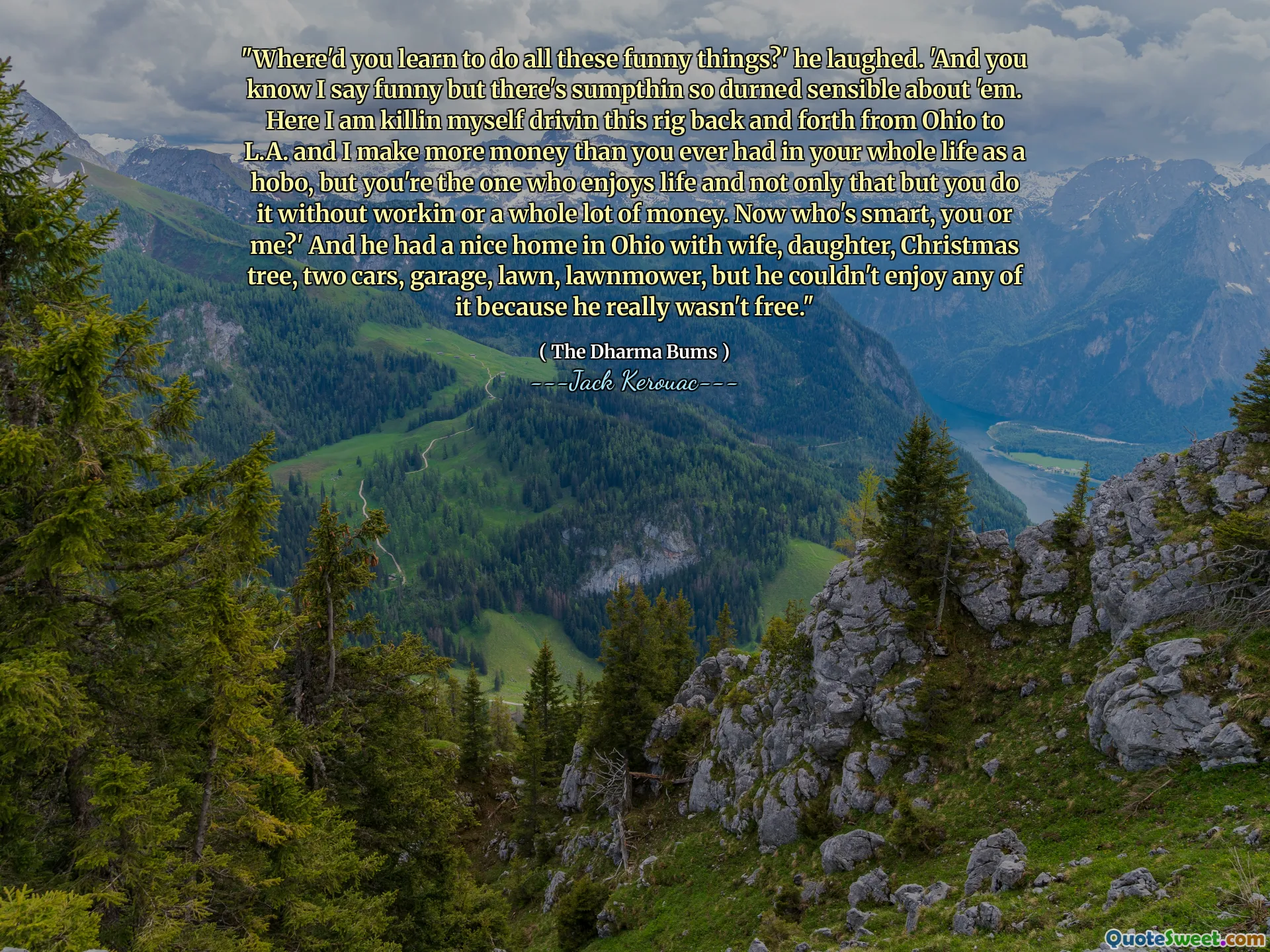
"Where'd you learn to do all these funny things?' he laughed. 'And you know I say funny but there's sumpthin so durned sensible about 'em. Here I am killin myself drivin this rig back and forth from Ohio to L.A. and I make more money than you ever had in your whole life as a hobo, but you're the one who enjoys life and not only that but you do it without workin or a whole lot of money. Now who's smart, you or me?' And he had a nice home in Ohio with wife, daughter, Christmas tree, two cars, garage, lawn, lawnmower, but he couldn't enjoy any of it because he really wasn't free."
This quote from Jack Kerouac’s The Dharma Bums offers a powerful reflection on the paradox of material wealth versus true freedom and happiness. It encapsulates a conversation between two contrasting lifestyles: the conventional, responsibility-laden existence and the freer, simpler way of living. The man who drives a rig back and forth, despite earning significantly more money and owning numerous possessions, recognizes that his life lacks the enjoyment and freedom that the hobo, a man with no material wealth or traditional responsibilities, experiences effortlessly.
The irony here is striking — wealth and status do not inherently guarantee joy or liberty. The so-called "funny things" the hobo does refer to non-materialistic pursuits that bring a deeper sense of satisfaction and a lighter heart. The quote challenges conventional wisdom that values income and possessions above all else, instead valuing the intangible yet profound quality of freedom: freedom from societal expectations, from the relentless grind, and from the anxiety that often comes with ownership and maintenance of that wealth.
Kerouac’s words invite readers to contemplate what truly makes life enjoyable and meaningful. Is it accumulating possessions and following the societal path of labor for material gain, or is it finding contentment in simplicity and pursuing life's pleasures without the constraints of conventional work? The emotional weight on the driver, despite his abundance, signifies a spiritual imprisonment that resonates with many modern readers who may feel trapped by their successes.
Ultimately, this quote is an eloquent critique of modern life's rat race and a reminder that freedom and happiness might lie not in what we possess but in how we live.







